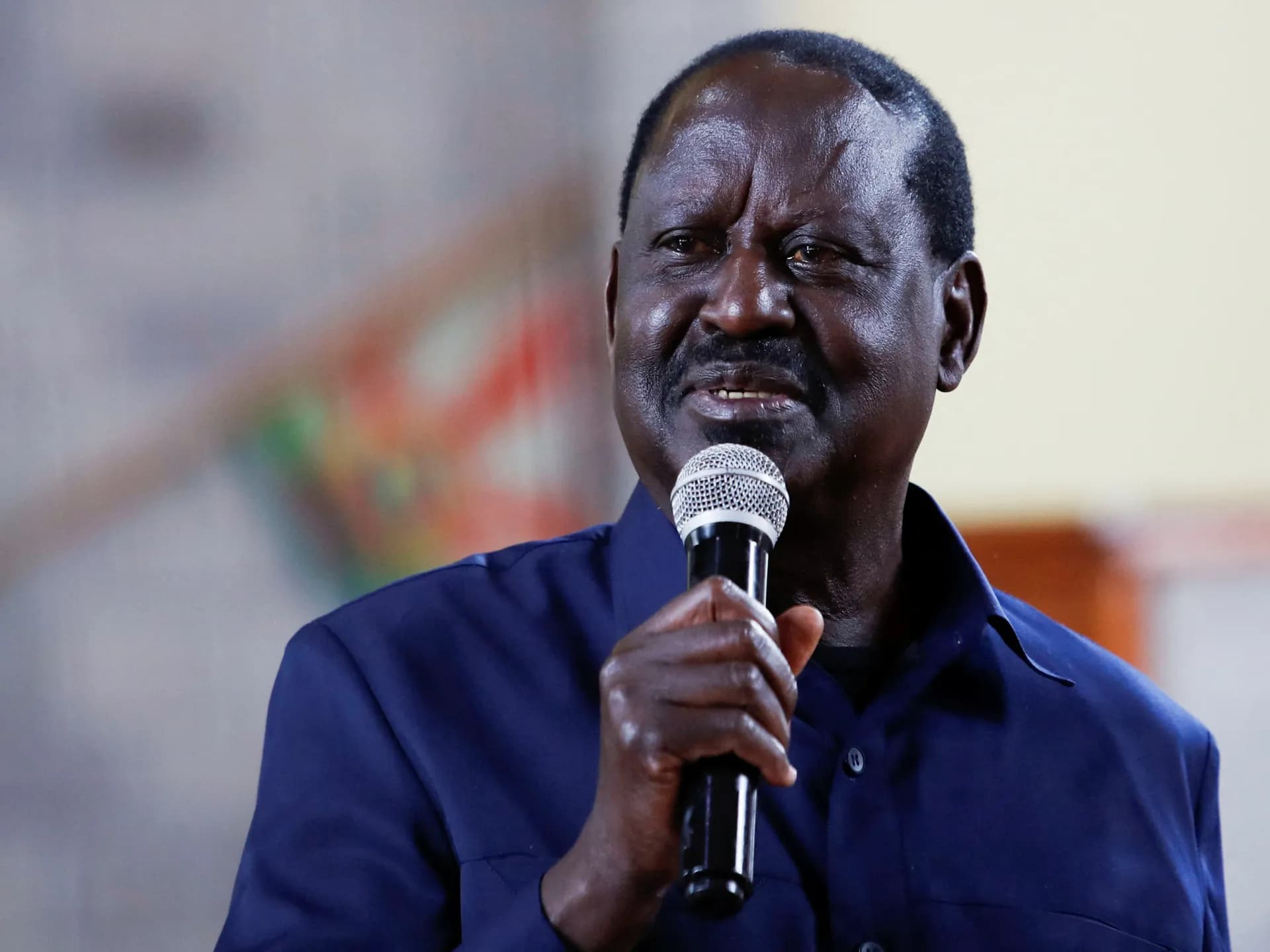We're loading the full news article for you. This includes the article content, images, author information, and related articles.
The morning of 15 October 2025 brought shocking news: Raila Amolo Odinga—former Prime Minister of Kenya, stalwart of opposition politics, and a voice of resilience—has died at 80.

On 15 October 2025, Kenya awoke to news that would shake its political foundations: Raila Amolo Odinga, 80, has died. His office confirmed the death via Reuters. Indian press reports claim he suffered a cardiac arrest in Kochi, India, while receiving medical care, was rushed to hospital and pronounced dead.
In the weeks leading to his death, speculation about Raila’s health mounted. He had been absent from public events for an extended period. Rumors ranged from hospitalization abroad to serious disease.
His wife, Ida Odinga, responded publicly in early October, denying serious illness and calling such speculations “malicious falsehoods.” His party’s secretariat, through spokesman Dennis Onyango, also dismissed reporting of health decline as politically motivated and insisted he was traveling, not hospitalized.
Days later, Raila’s brother, Oburu Odinga, acknowledged that Raila had been “indisposed” and recuperating in India, though he denied press claims that his brother’s condition was critical.
According to Indian press (Mathrubhumi) and Kenyan sources:
Raila was on a morning walk when he reportedly collapsed from cardiac arrest.
He was taken to a hospital in Kerala state (Devamatha Hospital, Koothattukulam is cited in one source), where he was declared dead.
Reports say his daughter and other relatives were by his side at the time.
As of now, no official statement has confirmed a more precise cause beyond “cardiac arrest,” or detailed medical reports.
Born 7 January 1945 in Maseno, in colonial Kenya.
Son of Jaramogi Oginga Odinga, Kenya’s first Vice President under Jomo Kenyatta.
Educated partly in East Germany, where he studied engineering/welding.
Served as Member of Parliament, Lang’ata (1992–2013).
Became Prime Minister under a grand coalition from 2008 to 2013 — a post created under Kenya’s 2008–2013 power-sharing arrangement.
Long-time leader of the Orange Democratic Movement (ODM) and a prominent opposition figure.
Ran for President five times (1997, 2007, 2013, 2017, 2022)—without electoral victory—often contesting results and alleging fraud.
His activism was central to Kenya’s transition to multiparty politics (early 1990s) and the 2010 constitutional reform process.
He played a key role in the protest and reconciliation process after the 2007–2008 post-election violence, during which ~1,300 people died and hundreds of thousands were displaced.
In February 2025, he ran for the African Union Commission Chairperson but lost to Mahamoud Ali Youssouf in the final round.
The shock of Raila’s death triggered an immediate outpouring of grief and political recalibration.
Kenyan leaders—presidential, opposition and local—are issuing condolences and calling for calm.
The ODM party is facing an urgent leadership vacuum and questions about succession.
Civil society, media, religious institutions and grassroots supporters are organizing memorials, vigils, and forums on Raila’s legacy.
In Parliament and county governments, voices are already urging the preservation of stability, continuity, and responsible stewardship.
Raila was a pillar of Kenya’s oppositional checks and balances. His absence weakens a major counterweight in national politics. How institutions adapt under pressure will test Kenya’s democratic resilience.
ODM and opposition coalitions must choose new leaders, negotiate alliances, and manage divergent agendas. There is risk of fragmentation or power struggles.
Raila’s causes—constitutionality, electoral reform, devolution, social justice—will now depend on successors. His death prompts questions: which of his policy goals will endure? Which will fade?
Raila’s narrative—of resistance, inclusion, defiance—resonated beyond political labels. As Kenya mourns, there’s space for collective reflection on national unity, ethnicity, accountability, and governance.
His role in African diplomacy (e.g. mediation, continental integration) may leave gaps. East Africa and AU partners will consider adjustments in diplomatic partnerships.
Raila Odinga was polarizing, controversial, and charismatic. To many, he was Kenya’s moral opposition: a voice in the wilderness, unyielding even when battered. To others, he was a constant challenger whose rhetoric outpaced deliverables.
His death closes a chapter in Kenya’s political saga. But it also opens one: of transition, contestation, memory and legacy. Long after funerals and tributes, the nation will measure him by what remains—and by what follows.
Keep the conversation in one place—threads here stay linked to the story and in the forums.
Sign in to start a discussion
Start a conversation about this story and keep it linked here.
Other hot threads
E-sports and Gaming Community in Kenya
Active 9 months ago
The Role of Technology in Modern Agriculture (AgriTech)
Active 9 months ago
Popular Recreational Activities Across Counties
Active 9 months ago
Investing in Youth Sports Development Programs
Active 9 months ago
Key figures and persons of interest featured in this article